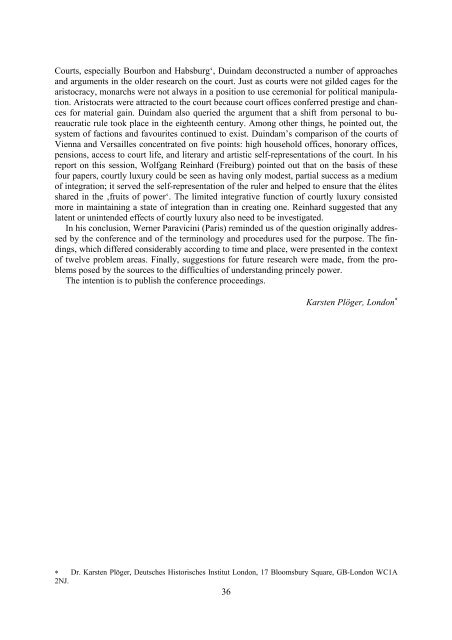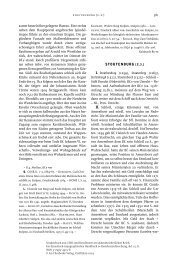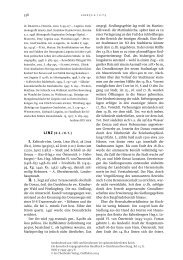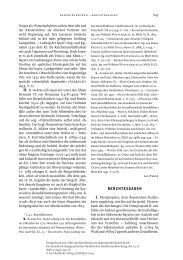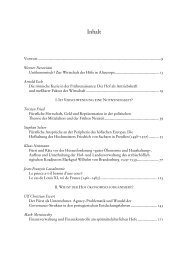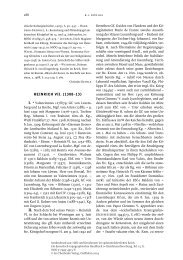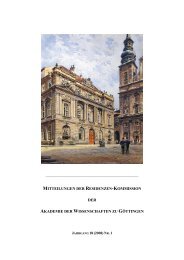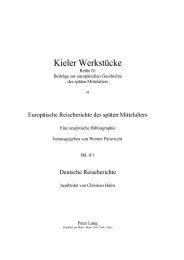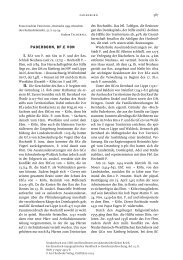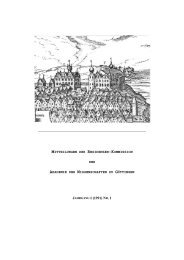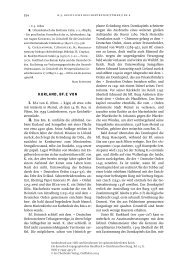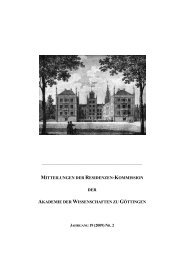MITTEILUNGEN DER RESIDENZEN-KOMMISSION DER ...
MITTEILUNGEN DER RESIDENZEN-KOMMISSION DER ...
MITTEILUNGEN DER RESIDENZEN-KOMMISSION DER ...
Erfolgreiche ePaper selbst erstellen
Machen Sie aus Ihren PDF Publikationen ein blätterbares Flipbook mit unserer einzigartigen Google optimierten e-Paper Software.
Courts, especially Bourbon and Habsburg‘, Duindam deconstructed a number of approaches<br />
and arguments in the older research on the court. Just as courts were not gilded cages for the<br />
aristocracy, monarchs were not always in a position to use ceremonial for political manipulation.<br />
Aristocrats were attracted to the court because court offices conferred prestige and chances<br />
for material gain. Duindam also queried the argument that a shift from personal to bureaucratic<br />
rule took place in the eighteenth century. Among other things, he pointed out, the<br />
system of factions and favourites continued to exist. Duindam’s comparison of the courts of<br />
Vienna and Versailles concentrated on five points: high household offices, honorary offices,<br />
pensions, access to court life, and literary and artistic self-representations of the court. In his<br />
report on this session, Wolfgang Reinhard (Freiburg) pointed out that on the basis of these<br />
four papers, courtly luxury could be seen as having only modest, partial success as a medium<br />
of integration; it served the self-representation of the ruler and helped to ensure that the élites<br />
shared in the ‚fruits of power‘. The limited integrative function of courtly luxury consisted<br />
more in maintaining a state of integration than in creating one. Reinhard suggested that any<br />
latent or unintended effects of courtly luxury also need to be investigated.<br />
In his conclusion, Werner Paravicini (Paris) reminded us of the question originally addressed<br />
by the conference and of the terminology and procedures used for the purpose. The findings,<br />
which differed considerably according to time and place, were presented in the context<br />
of twelve problem areas. Finally, suggestions for future research were made, from the problems<br />
posed by the sources to the difficulties of understanding princely power.<br />
The intention is to publish the conference proceedings.<br />
Karsten Plöger, London ∗<br />
∗ Dr. Karsten Plöger, Deutsches Historisches Institut London, 17 Bloomsbury Square, GB-London WC1A<br />
2NJ.<br />
36


